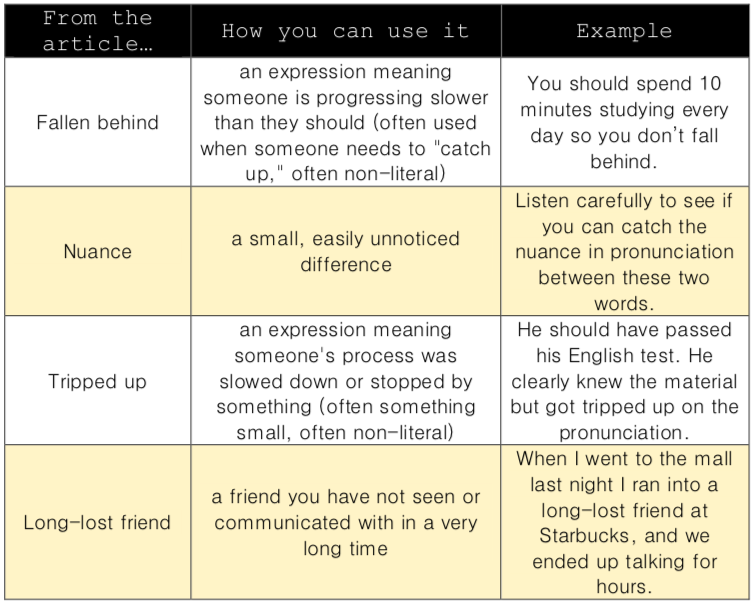
Catching Up
Let’s be honest. We’ve all fallen behind at some point in our lives. No matter how disciplined or hard-working you are, there will always be something in life that requires you to catch up.
Because of its many nuances, this phrase has tripped up many English learners in their journey to fluency. But you don’t have to be one of them.
Do you have work to catch up on? A person to catch up with? Or do you want to invite a long-lost friend for coffee in order to catch up? Keep this blog post handy so you’ll be ready to use “catch up” like a native when the time comes.
Ways We Use the Phrase “Catch Up”
- To catch up (with a friend) – to share life events with a friend that they may have missed because you haven’t seen each other for awhile
How to use: I haven’t seen you in years. Let’s get together and catch up.
- Catch (up with) – to try to reach the same level or place as someone who is further ahead
How to use: I want to catch (up with) Megan. She is a mile ahead of me.
- Catch up on – to make progress on a task that you have fallen behind on or not been working on as much as you should
How to use: I need to catch up on my reading for English class. I’m behind.
- Catch someone up (on)– to help someone reach a level or place they haven’t reached yet on their own (the same idea as #3 “catch up on,” but the action is directed toward someone else who has fallen behind)
How to use: Why don’t you come back after school, and we will work together to catch you up on the assignments you missed.
- To be caught up in – to be included in an activity or group that is usually negative (always used in past, passive tense)
How to use: Choose your friends carefully. You don’t want to be caught up in the wrong crowd.
Common Mistakes:
Let us catch up.Let’s catch up
(Native speakers always use the contraction form of “Let’s” when using this phrase)
I want to catch Megan. We haven’t spoken for awhile.I want to catch up with Megan. We haven’t spoken for awhile.
I need to catch up my reading for English class.I need to catch up on my reading for English class.
Sometimes there is more than one way of saying it…
I want to catch Megan. She is a mile ahead of me.
I want to catch up with Megan. She is a mile ahead of me.


